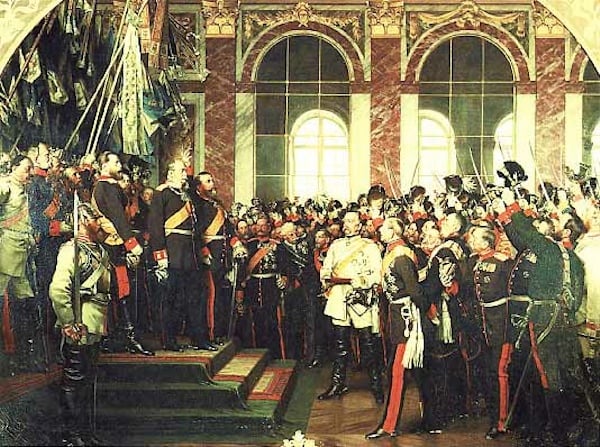
Diese Überlegenheit des berufsmäßig Wissenden sucht jede Bürokratie noch durch das Mittel der Geheimhaltung ihrer Kentnisse und Absichten zu steigern. Bürokratische Verwaltung ist ihrer Tendenz nach stets Verwaltung mit Ausschluß der Öffentlichkeit. Die Bürokratie verbirgt ihr Wissen und Tun vor der Kritik soweit sie irgend kann… Allein weit über diese Gebiete rein sachlich motivierter Geheimhaltung wirkt das reine Machtinteresse der Bürokratie als solches. Der Begriff des „Amtsgeheimnisses“ ist ihre spezifische Erfindung und nichts wird von ihr mit solchem Fanatismus verteidigt wie eben diese, außerhalb jener spezifisch qualifizierten Gebiete rein sachliche nicht motivierbare, Attitude. Steht die Bürokratie einem Parlament gegenüber, so kämpft sie aus sicherem Machtinstinkt gegen jeden Versuch desselben, durch eigene Mittel (z.B. das sogenannte „Enquêterecht“) sich Fachkenntnisse von den Interessen zu verschaffen: ein schlecht informiertes und daher machtloses Parlament ist der Bürokratie naturgemäß willkommener—soweit jene Unwissenheit irgendwie mit ihren eigenen Interessen verträglich ist.
Every bureaucracy strives to increase the superiority of its position by keeping its knowledge and intentions secret. Bureaucratic administration always seeks to evade the light of the public as best it can, because in so doing it shields its knowledge and conduct from criticism… The pure interest of a bureaucracy in power, however, stretches far beyond those areas where purely professional interests might justify the demand for secrecy. The concept of the “official secret” is the specific invention of bureaucracy, and nothing is so fanatically defended by the bureaucracy as this attitude, which cannot really be justified beyond these specifically qualified areas. In facing a legislature, the bureaucracy, motivated by a pure lust for power, will battle every attempt of the legislature to gain information by means of its own experts or from interest groups. The so-called power of legislative oversight is but one means by which a legislature can seek such information. But bureaucracy inherently welcomes a poorly informed and hence a powerless legislature—at least in so far as ignorance somehow coincides with a bureaucracy’s own interests.
—Max Weber, Wirtschaft und Gesellschaft, ch ix, pt 2, pp. 730-31 (1918) (S.H. transl.)
The struggle of the forces of bureaucracy to maintain their precious secrets is a steady element of the Washington political environment, as it indeed figures in the political life of all modern democratic states. But today this struggle has taken center stage. Guarding their secrets is essential to the nation’s security, the guardians of the state tell us. Expose them, and we’ll all be at risk. This argument has its historical antecedents, of course, and none more powerful than the experience of Germany in the years up to and during the Great War. Germany’s nascent democratic institutions were strangled by a national security bureaucracy that steadily assumed dictatorial powers in the country. But Max Weber, the brilliant student of these developments, showed clearly that beyond the narrow confines of legitimate state secrets–involving diplomatic and military tactical matters–secrecy played an altogether destructive role. More often than not, secrecy was invoked to protect bureaucrats from disclosure of facts that would embarrass them by demonstrating that they had acted foolishly, corruptly, or even criminally. Secrecy effectively subverted the democratic process, avoided the checks of democratic institutions and the exposure and correction of mistakes. Consequently it was evident that the German national security state’s obsession with secrecy actually undermined the security of the state and contributed to a failed war effort, and ultimately to the state’s collapse and demise. There is a role for secrecy in government, Weber acknowledges, but more often than not the claim of “official secrets” cloaks a raw struggle for power and authority between the institutions of a democracy. Too much secrecy means the triumph of the bureaucratic state, and is the death knell for democracy. And in America today, the pendulum has swung dangerously in favor of unsustainable claims of secrecy.



